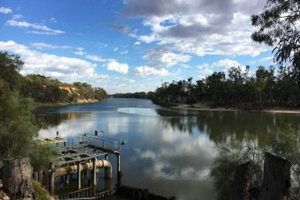Key Points
|
The statutory role of inspector-general would monitor
compliance, investigate suspected water theft, and check that water
recovery and efficiency projects are delivered.
Mr Littleproud
said the inspector-general would "hold the Murray-Darling Basin
Authority, Commonwealth and all states to account … and ensure laws
governing water use are followed"."This is a new, tough cop on the beat across the Murray-Darling with the powers needed to ensure integrity in the delivery of the basin plan," Mr Littleproud said.
 |
| The new role is expected to be established by 2020 and have powers under the Water Act 2007. (ABC Rural: Brett Worthington, file photo) |
The new role is expected to be established by 2020 and have powers under the Water Act 2007.
Mr Littleproud said the inspector-general
would have the ability to refer issues to the Commonwealth Integrity
Commission and would be supported with offices and staff in the northern
and southern basins.
"The public needs to know the basin plan is
delivering the water it was intended to, and farmers need to know the
plan is working as it should," he said.The appointment of the inspector-general for the Murray-Darling Basin would be a matter for the Federal Cabinet, but Mr Littleproud hoped former
AFP commissioner Mick Keelty would fill the
 |
| Mr Littleproud hoped former AFP commissioner Mick Keelty would fill the position in the interim. (AAP: Daniel Munoz, file photo) |
Mr Keelty began a three-year term as Northern Basin Commissioner, with similar responsibilities to the inspector-general role, last September.
"It is in respect of what he has achieved. It has meant we have been able try to roll that position out across the basin and ensure it has more teeth," Mr Littleproud said.
It is expected to be the first meeting of the ministers following mass fish kills in the lower Darling, and the completion of a Productivity Commission report and South Australian Royal Commission into the Murray-Darling Basin Plan.
Links
- What is the Murray-Darling Basin Plan and why are we still talking about it?
- Confused by the Murray Darling controversy? Here's your simple guide
- How taxpayers are funding a huge corporate expansion in the Murray-Darling
- Billions of litres of water 'missing' from Murray-Darling Basin, study claims
- The cotton grower, the water minister and the broken meter
- 'People have to be named': Scientists say broken Murray-Darling system can be fixed
- Murray-Darling Basin Royal Commission slams authority for 'maladministration'
- Murray-Darling report lays bare that 'the system is sick', say the people it affects
- What will the Murray-Darling Basin Royal Commission reveal?
- Productivity Commission calls out governance failings in Murray-Darling Basin Plan roll-out
- Murray-Darling royal commission won't cross-examine federal bureaucrats
- Cotton farm execs face court over $20m federal funding 'fraud'
- How the iconic sites of the Murray-Darling Basin are doing under the plan
- Watch Pumped: Who is benefitting from the Murray-Darling?
- Federal Government and Labor strike deal on future of Murray-Darling Basin Plan
- Advisory group pens unprecedented letter to try save Murray-Darling Basin Plan
- How to kill a river system three times as salty as the sea
- Major Murray-Darling Basin water-saving plan questioned




